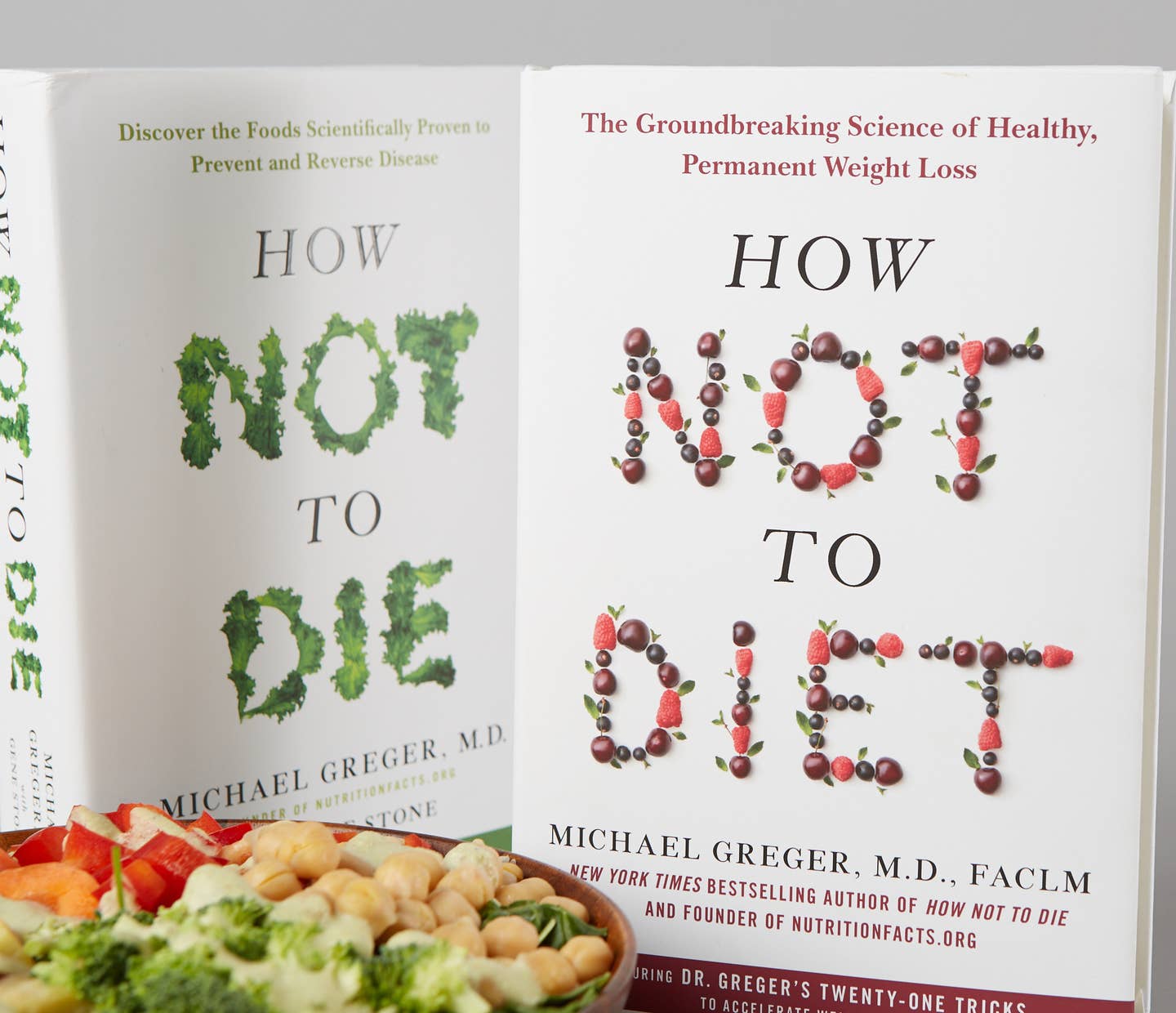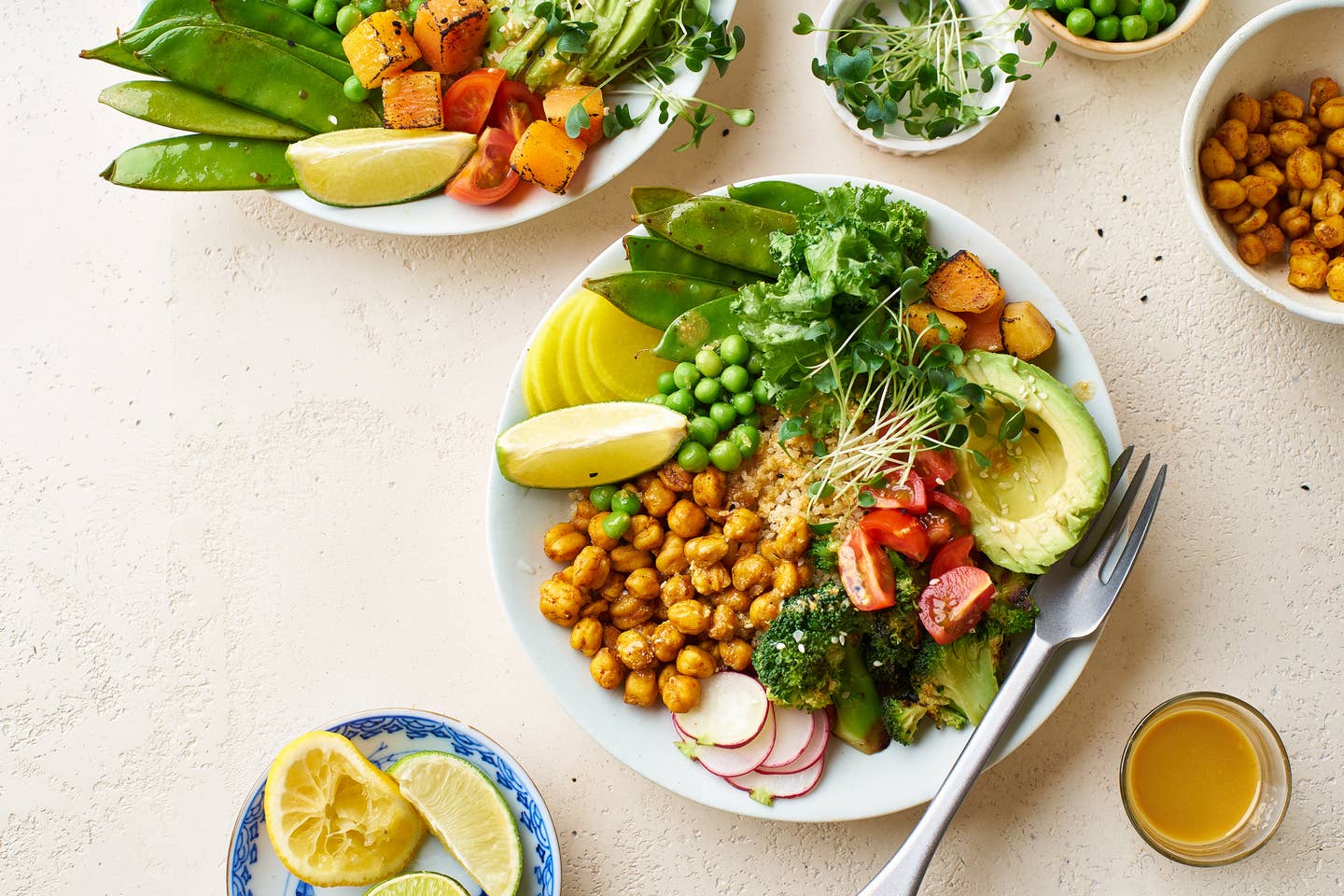
The Best Diet Book You’ll Ever Read: How Not to Diet by Dr. Michael Greger
The author of the bestselling book, How Not to Die, Dr. Michael Greger, seems to only be able to publish massive tomes as thick as a phone book, as detailed as an encyclopedia, and as stunningly life-changing as any bible. (OK—before you come after me with forks, this is an exaggeration, but you get the idea.)
No quick-fix here, his latest book, How Not to Diet, will take hours upon hours to read, since every page is dense with the kind of information you can't skim. And you wouldn't want to; every time you try to speed read or glance at a page, a factoid jumps out at you that is just too good to skip. Then you find yourself backtracking to read more on why intermittent fasting does not work long-term, or how the latest food systems in America have given rise to our current obesity epidemic, where now 70 percent of us are overweight. Back in the sixties, when women cooked most meals for the family, we ate fewer calories and more fresh and nutritious food than in the '70s, 80s and later, when our caloric intake ballooned along with our waistlines.
The faster and cheaper our food became, the fewer nutrients and fiber it delivered to our bodies. In fact, the processing of food like rice removes most of the fiber, so unless you're eating wild or brown rice, you might as well be eating straight starch. The same is true of sugar, bread and just about every food that we see on store shelves that are not whole foods close to their natural source like canned tomatoes or fresh produce. Each time our food was "improved" the process made it more calorie-dense and less nutrient-dense. And because of the way humans are programmed, we seek out the higher-calorie foods as a matter of survival. But what led us here is also now drowning us in unhealthy ingredients. The fact that we are genetically engineered to seek calories means we are too good at it. Now that food over-delivers, we need to learn how to do the opposite and seek nutrient-dense and fiber-rich foods. Dr. Greger is here to teach us how to do exactly this.
Each chapter is chock-a-block with facts and trends in food production, diet trends, and how science has been twisted to support the latest diet du jour. There are over 30,000 diet books listed on Amazon, and weight loss is a $5 billion industry. He sets up the weight loss portion of the book with fact upon fact (losing just 10% of your body weight if you're overweight improves your chances of avoiding major diseases, for instance) so that you find yourself underlining and remembering facts you want to repeat over and over at cocktail parties.
Will this book help you lose weight? Yes, in the same way that knowledge is power. Dr. Greger is an unapologetic advocate of plant-based eating, and his facts back up the bias: Fiber fills us up, and the fiber in plants sends calories through the body with a lower net effect that the same calories if they were eaten in sugar (which actually drives up appetite) and meat (which creates heart disease) and animal fat (dense calories that don't send us satiety cues.) Pretty much everything you read in these pages will convince you that the research leads from many channels and avenues to the same message: Plants are good food, and they help you lose weight. The more whole foods and plant-based foods you eat, the less you will weigh. In fact, it's just the kind of thing you find yourself repeating at cocktail parties.
Dr. Greger's first book, How Not to Die, told me a fact that has literally changed my life already. My fingers freeze when I bike or run outside in the winter, and while reading the chapter on "How Not to Die from Strokes" he explains that citrus helps circulation and women who were forced to put their hands into cold water after eating a small piece of citrus did not feel the symptoms as much as those who didn't. I tried eating a clementine before a cold morning ride that day and low and behold my hands didn't hurt and I could feel my fingers the entire time outside, work the brakes and never worry that my mild Raynaud's Syndrome (cold extremities that ache to the point of distraction) would cause me to cut my ride short.
So not only did I learn important facts about how not to die of Alzheimer's and stroke—though there is still plenty of time for both—I didn't die on a mountainous downhill, worked my brakes just fine, and had a great ride! This is the kind of thing these books afford you: practical advice and information to help you live a healthier life every day, while avoiding death from lots of causes. Dr. Greger's facts are also the subject of endless videos and facts on his website, a non-profit he runs called Nutritionfacts.org. Go there to check out the fun, science-based information that make up most of his research.
I have not yet finished this new book, which launches this week, and actually hope not to ever actually put it down for more than a day or so, since anyone who is intellectually stimulated to lose weight the old fashioned way, by eating healthy and moving a healthy amount, will want to keep on sucking up the information and inspiration that is encapsulated in his scientific, evidence-backed research-driven writing. Dr. Greger is the non-diet guru for our ages: Not a Jack LaLanne but a bespectacled uncle or professor who simply gives us the facts, thousands and thousands of them at a time, to back up the sheer and honest, unequivocal and uncompromising truth. Good food makes for good bodies. And plant-based whole food is good food.
By the way, give this and the original How Not to Die to anyone on your list who is either health-conscious, paranoid, a hypochondriac or just fascinated by all things medical and plant-based. Both are great gifts (just make sure not to make the Peleton mistake that you're sending some kind of message that you think the recipient "needs" this).
We promise the books are good reads and the factoids are life-altering for any student of nutrition, science and health.
More From The Beet






